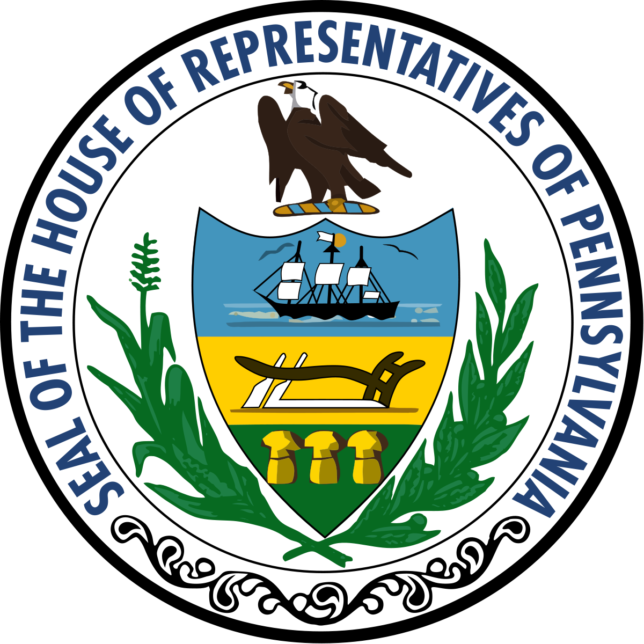Joe Jackson, patriarch of musical Jackson family, dies at 89
By MESFIN FEKADU, AP Music Writer
NEW YORK (AP) — Joe Jackson, the fearsome stage dad of Michael Jackson, Janet Jackson and their talented siblings, who took his family from poverty and launched a musical dynasty, died Wednesday. He was 89.
Clark County Coroner John Fudenberg told The Associated Press that Joe Jackson died at Nathan Adelson Hospice in Las Vegas.
Fudenberg said he did not have full details, and a determination was not immediately made about whether his office would handle the case.
“We are reviewing the circumstances surrounding the death, but there is no reason to believe it’s anything other than a natural death,” the coroner said.
Jackson was a guitarist who put his own musical ambitions aside to work in the steel mills to support his wife and nine children in Gary, Indiana. But he far surpassed his own dreams through his children, particularly his exceptionally gifted seventh child, Michael. Fronted by the then-pint-sized wonder and brothers Jermaine, Marlon, Tito and Jackie, the Jackson 5 was an instant sensation in 1969 and became the first phase of superstardom for the Jackson family. Over the following decades, millions would listen to both group and solo recordings by the Jackson 5 (who later became known as The Jacksons) and Michael would become one of the most popular entertainers in history.
Joe Jackson died two days after the nine-year anniversary of Michael Jackson’s death.
The King of Pop’s estate released a statement mourning the death.
“We are deeply saddened by Mr. Jackson’s passing and extend our heartfelt condolences to Mrs. Katherine Jackson and the family. Joe was a strong man who acknowledged his own imperfections and heroically delivered his sons and daughters from the steel mills of Gary, Indiana, to worldwide pop superstardom,” said John Branca and John McClain, co-executors of the estate.
“Papa Joe,” as he would become known, ruled through his stern, intimidating and unflinching presence, which became so indelible it was part of black popular culture, even referenced in song and on TV.
“This is bad, real bad Michael Jackson, Now I’m mad, real mad Joe Jackson,” Kanye West rhymed in Keri Hilson’s 2009 hit, “Knock You Down.”
Michael and other siblings would allege physical abuse at their father’s hands.
“We’d perform for him and he’d critique us. If you messed up, you got hit, sometimes with a belt, sometimes with a switch. My father was real strict with us — real strict,” Michael Jackson wrote in his 1985 autobiography, “Moonwalk.”
La Toya Jackson would go as far as to accuse him of sexual abuse in the early 1990s, when she was estranged from her entire family, but she later recanted, saying her former husband had coerced her to make such claims. She and her father later reconciled.
By the time they were adults, most of the Jackson siblings had dismissed him as their manager; Michael and Joseph’s relationship was famously fractured; Michael Jackson revered his mother, Katherine, but kept his distance from Joseph.
However, during some of his son’s most difficult times, including his 2004 molestation trial, Joseph was by his side, and Michael acknowledged their complicated relationship in a 2001 speech about healthy relationships between parents and their children:
“I have begun to see that even my father’s harshness was a kind of love, an imperfect love, to be sure, but love nonetheless. He pushed me because he loved me. Because he wanted no man ever to look down at his offspring,” he said. “And now with time, rather than bitterness, I feel blessing. In the place of anger, I have found absolution. And in the place of revenge I have found reconciliation. And my initial fury has slowly given way to forgiveness.”
In his autobiography, Joseph Jackson acknowledged having been a stern parent, saying he believed it was the only way to prepare his children for the tough world of show business. However, he always denied physically abusing his children.
Joseph Walter Jackson was born in Fountain Hill, Arkansas, on July 26, 1928, the eldest of four children. His father, Samuel Jackson, was a high school teacher, and his mother, Crystal Lee King, was a housewife.
The couple split up when Jackson was 12. He moved with his father to Oakland, California, while his mother moved to East Chicago, Indiana. When he turned 18, he moved to Indiana to live near his mother. It was there that he met and married Katherine Scruse.
In the 1950s, he had tried to launch his own music career as a guitarist, but he came to realize the truly gifted musicians in his family were his children.
He launched a group in 1962 that featured his three eldest sons — Jackie, Tito and Jermaine — and two neighbors. He eventually replaced the neighbors with brothers Michael and Marlon, and the Jackson Five went professional in 1966. By 1969, they had signed to Motown, when their bubble gum soul-pop hybrid would create Beatle-like mania, with hits including “I Want You Back,” ”ABC” and “I’ll Be There.”
Michael, who joined the group at age 8, was its showstopper from the beginning. A bright-eyed bundle of energy with a soaring voice and dynamic dance moves, he quickly became the lead singer.
Joe Jackson literally drove his kids to success, taking them around the country looking for singing engagements and recording opportunities.
Randy, the youngest Jackson brother, replaced Jermaine in the mid-1970s when the group left Motown and became The Jacksons at CBS; Jermaine, then married to founder Berry Gordy’s daughter Hazel, stayed behind and launched a solo career.
While Michael’s success as a solo performer would eventually dwarf that of the rest of his family, Janet would become another multiplatinum superstar; Joe Jackson initially managed her career, too, putting her in the Jacksons’ variety show in the early 1970s, where she charmed with her Mae West routine, and shepherding her acting career on shows like “Good Times.” But soon after she put out “Control,” her breakthrough album at 19, she, too, would sever managerial ties with her father.
In a 2003 interview with Martin Bashir, Michael Jackson teared up when discussing the alleged abuse, saying he would sometimes vomit or faint at the sight of his father because he was so scared of him.
“We were terrified of him. Terrified, I can’t tell you I don’t think to this day he realizes how scared, scared,” said Jackson, who added that his father would only allow him to call him by his first name, not “daddy.”
The alleged abuse wasn’t just physical. Michael Jackson, who drastically changed his face with plastic surgery through the years, talked several times about how his father would mock the size of his once-broad nose, calling him “big nose.”
After Michael’s death, Joseph Jackson sued when it was disclosed that he wasn’t included in Michael’s will. Michael’s mother, Katherine, was given custody of Michael’s three children and the money to support them. But none of the siblings were named as heirs.
Father and son seemed to have reconciled for a time when Michael Jackson was on trial on child molestation charges. His father was in court to lend him support nearly every day, and Michael was acquitted of all counts in 2005. But he left the country and when he returned, they weren’t close.
Toward the end of his life, Michael did not allow his father to visit his Holmby Hills home. Bodyguards said they turned away Joseph Jackson when he appeared at the gate wanting to visit his grandchildren.
By 2005, no longer involved in his children’s careers, Joseph Jackson had launched a boot camp for aspiring hip-hop artists, promoting lyrics without vulgarity and sponsoring competitions for young artists from across the country. He spent most of his time at a home in Las Vegas and traveled the country auditioning talent for the competition.
For many years before that, he and his wife had lived in an estate they built in Los Angeles’ San Fernando Valley where he had hoped his children would remain with him at least until they were married and perhaps even afterward. But there were estrangements, and Jackson, a dandy who wore a pencil-thin mustache and huge diamond pinky ring, faced allegations by his wife of infidelity. She filed for divorce twice but never followed through.
“We just let our troubles die out,” Jackson said in 1988, following a reconciliation. “We survived. We love each other, and we have children. That’s why we’re together.”
When Dr. Conrad Murray went on trial in 2010, charged in Michael’s overdose death from propofol, Joseph and Katherine attended court with several of Michael’s siblings. Murray’s conviction of involuntary manslaughter provided some measure of comfort for the family.
Joe Jackson is survived by his wife, his children and more than two dozen grandchildren.
____
This story has been corrected to show that Joe Jackson was born in 1928, not 1929.
____
Former AP Special Correspondent Linda Deutsch, AP Entertainment Writer Nekesa Mumbi Moody and AP Writer Ken Ritter contributed to this report.


















